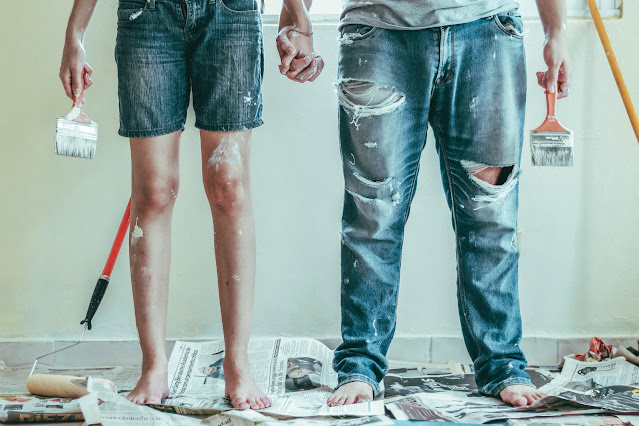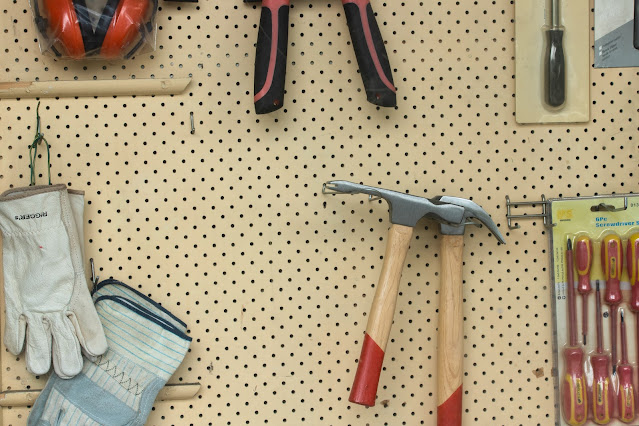I am a terrible DIY-er. I want everything done yesterday and I want it done on the tightest budget ever. My husband has now banned me from most jobs as I favour a shabby chic style which to him just means, "not done properly."
He is a perfectionist and will spend hours on prep work, research and measuring. I have been known to paint over cobwebs.
Luckily he is also quite knowledgeable about building regulations, health and safety and that kind of thing (after working in construction for years) whereas left to my own devices I might suddenly have a whim for open plan living and get smashing with a massive hammer only to find that, yes, that was a supporting wall which is now not supporting anything.
Although thanks to my husband's skills we very rarely need expert assistance, sometimes it is necessary. Amateurs should not tackle most electrical or gas related jobs for instance. Luckily my friend's son is a trained and qualified electrician so when one Sunday I decided a main light needed sorting only to discover complicated wiring beyond my husband's ability I was grateful he's a lovely lad who didn't seem to mind too much when I called him to see if he'd come over NOW and install my new light fitting.
We had professionals in to take out our old open fire place and install a new back and surround and if I had a dodgy ceiling (think stucco or popcorn finishes) I would definitely call someone in. Patch Dudes stucco ceiling removal process is a perfect example of why it's worth giving up on the idea of doing it yourself with dustless sanding and removal avoiding the almighty mess you are going to make if you attempt this horrible job.
So my main tips for avoiding DIY disasters are:
- Don't attempt any significant structural work without knowing where power and water lines, and supporting walls are. Your house may flood, blow up or collapse and you may injure yourself or even die.
- Make sure you have the right tools for the job. With so many DIY stores including Home Depot and Wickes where there are experts to consult you will be able to work out what you need to make the job quicker, easier and cleaner.
- Ask for help from experts. You may find your friends and neighbours could help and maybe even do it for free or for "mates rates." When we were installing a second hand conservatory we were so grateful for help from our friend who was a window fitter and our neighbour who we paid to do the bricklaying.
- Know when to stop. If you've started a job (like my light fitting) and get to a point where you realise it's beyond your capabilities, don't be embarrassed to call for professional help.
- Plan and prepare. Don't be like me and just start smashing walls or painting things without really doing the groundwork. The end result will be much better!

